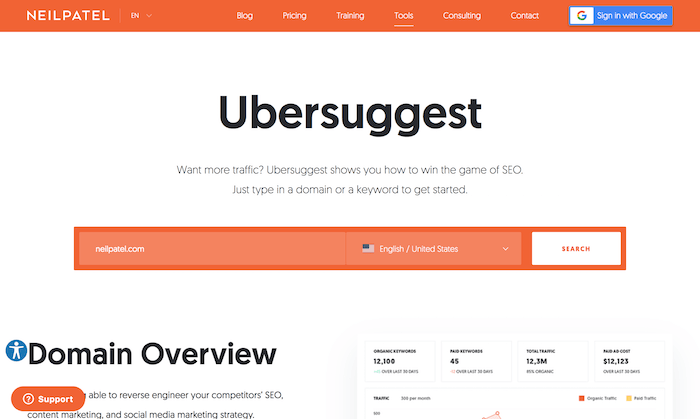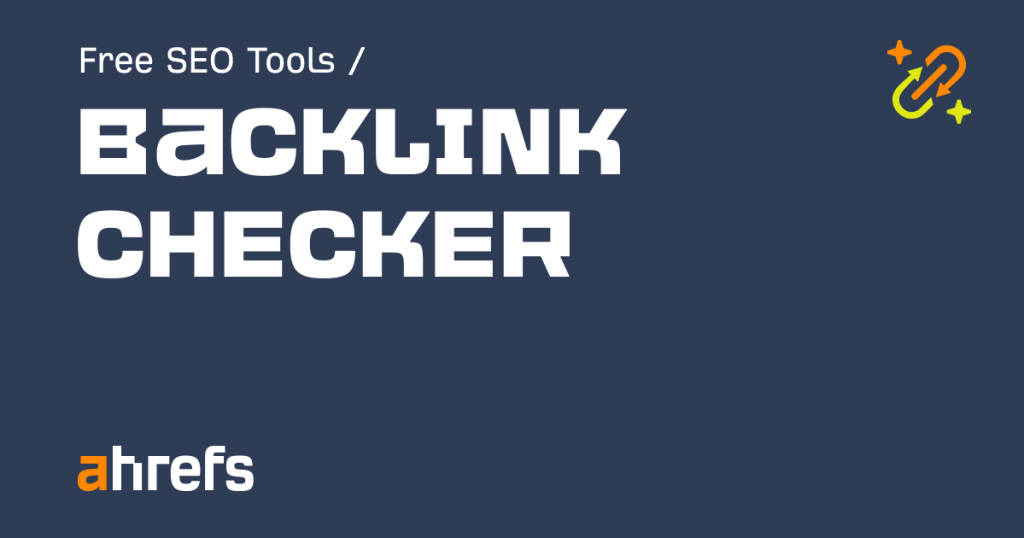Are you starting a blog or do you already have one? As you know, blogging involves writing, attracting more traffic, and earning money online. But what if you’re just starting out and don’t have much experience to make it successful?
Therefore, after thorough research on the internet, I have found some free blogging tools for beginners that can help you write compelling articles, conduct keyword research, and monetize your blog without requiring extensive technical knowledge to operate.
In this article, you will discover the best blogging tools to make your blogging journey a little easier, regardless of which content management system (CMS) you use. Alongside the free blogging tools, I have provided their features and alternatives that you can consider if you find them more suitable for your needs.
Shall we begin?
10 Best Free Blogging Tools for Beginners
Before diving into these free blogging tools for beginners, I want to clarify that these tools are not for automating content writing. Instead, all the blogging tools I’ve listed are the best choices to start with from scratch.
1. ChatGPT

ChatGPT is a great AI tool, no matter which industry you’re working in. It can help you with anything you have in mind. You just need to type in a prompt (your message), and that’s how you get results in a few seconds.
You can leverage ChatGPT in your blogging by crafting headlines to use in your articles, getting a sense of writing your article, and most importantly, understanding how you can use its information to improve your blog content (but don’t just copy-paste). I think it’s the best blogging tool you can consider as a beginner.
How to use ChatGPT for blogging?
- Understand more about your articles and how to strategically incorporate your keywords.
- Generate code snippets without hiring a developer.
- Use ChatGPT to discover what you can do next to improve your blog traffic or income.
Alternatives you can use instead of ChatGPT if it’s not appropriate for you: Consider trying The Bard, Jasper, or Rytr (only applicable if you need help with content writing).
2. Canva

Canva can be your go-to tool if you need to design your posts or articles with beautiful thumbnails. Starting with this tool does not even require you to invest a single penny, instead, it offers great features still when you are using its free version.
As a beginner, you use Canva to design your logos, blog thumbnails (as I have designed), company brand images, infographics, social media posts, or any other images that you need to make more beautiful designing your blog, Canva can be the best free blogging tool for beginners (especially for design).
Alternatives to Canva may include trying Visme, Pixlr, Snappa, or any other tool you may find more appropriate.
3. Ubersuggest

Ubersuggest can be the best keyword research tool for bloggers. It offers you a variety of options to find keywords for your blog and to rank higher than your competitors. Ubersuggest also comes with its own Chrome extension, which is more useful when searching for keywords directly on Google.
Ubersuggest doesn’t charge you thousands of dollars to start; it’s free to use. You can get keywords, suggestions for your keywords, and traffic estimates for those keywords, all for free.
How to leverage the most from Ubersuggest?
- Create a free account and get started. Type in your keyword and check its difficulty to determine whether to write an article on it or not.
- Install its Chrome extension to view keywords without visiting the website (you get 40 free searches every day).
Alternatives to Ubersuggest that I can think of are Semrush or Ahrefs keyword generator.
4. Google Search Console

Google Search Console tool is helpful for everyone, whether you are a beginner or a pro. If you’ve created your blog, then by using Google Search Console (GSC), you can look for blog errors, content issues, submit your blog to become visible in Google, and also track how much traffic you’re getting and how it’s performing.
It’s free and trustworthy, offered by Google itself. Just create your account on GSC and start measuring your blog’s stats. This is a highly recommended blogging tool for beginners.
How to get the most from Google Search Console?
- Use it to measure your blog’s performance.
- Check on backlink stats.
- Get ideas to grow your site or improve its speed.
As this tool is the best and free for forever use, I have not found any great alternatives. You should definitely use it.
5. Google Analytics

Google Analytics is another great tool offered by Google to track your analytics in detail. While GSC is good, if you need advanced tracking, then this may be a great option.
No, Google Analytics is not technical; it’s simple to implement and easy to use. GSC doesn’t offer you live viewers on your blog, but Google Analytics helps you view how many live users are currently on your site.
How can Google Analytics be useful for bloggers?
- First of all, create an account and implement its unique code onto your blog (don’t worry, it’s simple to implement).
- Start monitoring analytics such as live traffic, conversions, countries, and which articles are performing better.
6. Grammarly

Every blogger doesn’t start with proficient language. If you are new to blogging, then you’ll make a lot of grammatical mistakes. Therefore, using Grammarly can be a good option.
Simply create a free account on Grammarly and install its Chrome extension. This will help you by showing suggestions when there are incorrect words written and automatically prompt you to correct them.
Features of Grammarly:
- Helps in proofreading articles, paragraphs, or any other written content.
- Automatically highlights text that needs improvement.
Alternatives to Grammarly include ProWritingAid, Hemingway App, and more.
7. Ahrefs Backlink Checker

Backlinks are important for blogs to rank higher; they serve as votes from other websites or blogs to show your trustworthiness. If you need to track all these backlinks for free, you can check Ahrefs’ Backlink Checker.
It’s free, and you don’t even have to create an account to use it. Periodically check this tool to see if any new backlinks are coming to your blog.
Semrush Backlink Analytics can be a great alternative if you need to manage and monitor your backlinks.
8. Pexels

I know that at your starting stage, you can’t create premium or professional illustrations. It’s time-consuming and requires money. As high-quality images drive more engagement than blurry ones, choosing a stock-free image platform can be an option.
Pexels is a great stock-free image platform offering various types of images across different industries. It’s simpler than creating images from Canva, and since they are licensable, you don’t need to worry about copyright issues.
Alternatives to Pexels may include iStock, and Shutterstock.
9. Quora

Quora is perhaps not a traditional tool, yet you can use it as a blogging tool. It hosts thousands of solutions to various questions. You can leverage Quora to drive traffic, discover new keyword ideas, and build quality backlinks. It can serve as a keyword research tool for you (for free).
Quora is free to use; just create an account and start writing to attract traffic.
How to get the most from Quora?
- Use Quora to find questions that can be turned into long-tail keywords for your blog articles.
- Utilize it to earn money (by earning a commission when someone purchases a Quora subscription through your profile).
- Build connections and acquire backlinks for your blog.
The best alternative to Quora is to use Reddit. It’s suitable for beginners and pros alike to build backlinks and links to other sites.
10. SEMrush

Semrush is another in-depth keyword research tool. It’s not fully free, but it comes with a free version that allows you to find at least 10 keywords a day and offers a free site audit.
Semrush is a popular tool to explore and track your SEO efforts. Therefore, make sure you make the best use of it, even when using the free version.
How can Semrush help in blogging?
- Helps you find the right keywords to create content on.
- Analyzes the backlink profile of your site without the need to check it repeatedly.
- Assists in site audits to improve your blog’s performance.
Alternatives to Semrush include Moz, Ahrefs, and SimilarWeb.
Are any Other Blogging Tools to Consider?
I mentioned all the free blogging tools for beginners that I thought might be helpful to you. Yet, I have some other blogging tools that may be beneficial for your blogs.
Firstly, I want you to check out the Headline Analyzer tool, which is helpful for crafting headlines that perform better than simple ones. Start by typing your actual headline, then analyze it to make it more compelling using the suggestions you receive.
The next tool is Brevo, which is useful if you need to do email marketing to your subscribers and increase your blog traffic.
These tools may not be essential for beginners, but I believe that using them alongside can help increase your traffic. Are you familiar with all these blogging tools? Let me know in the comments.
Conclusion
As this article covers the best free blogging tools for beginners, using them for your blog can be quite beneficial. These tools are helpful for writing your articles, building backlinks, and researching keywords.
But if you encounter any difficulties, feel free to let us know in the comment section or if you need to know about any other tools.

Leave a Reply